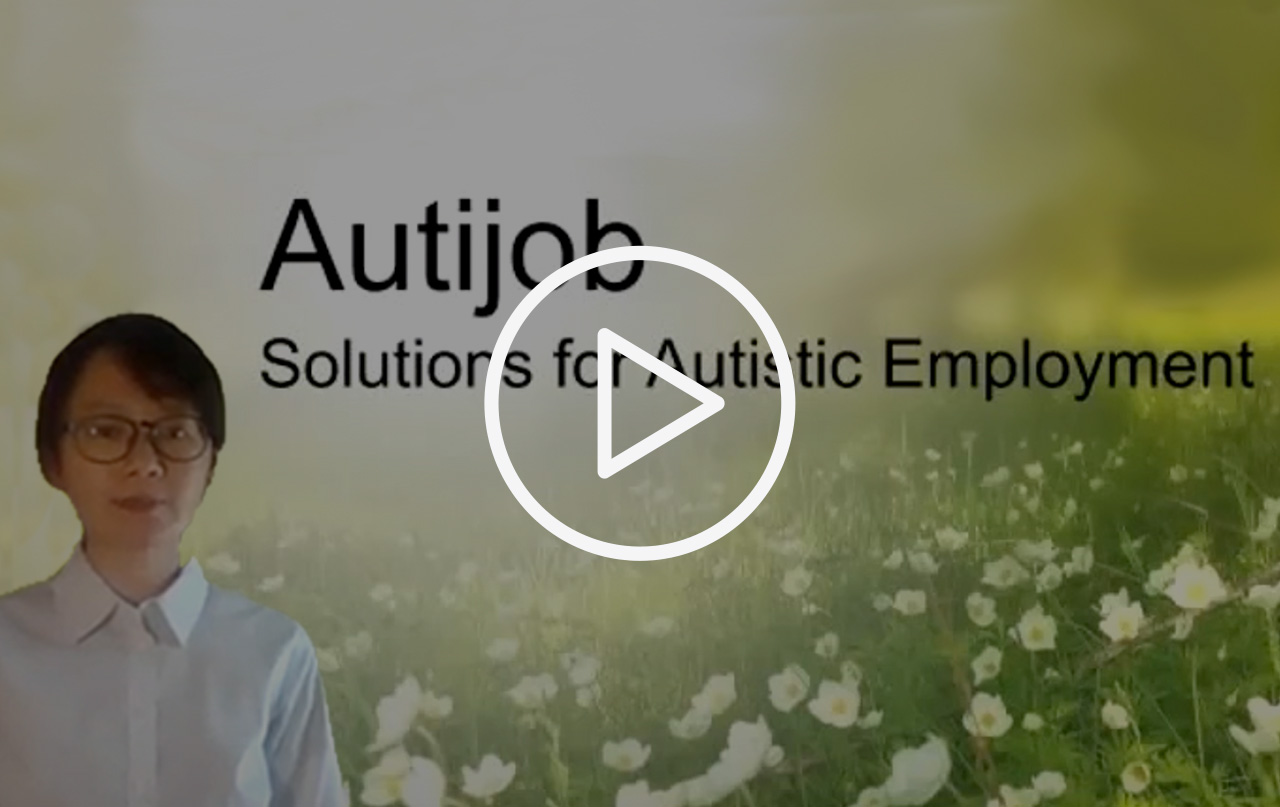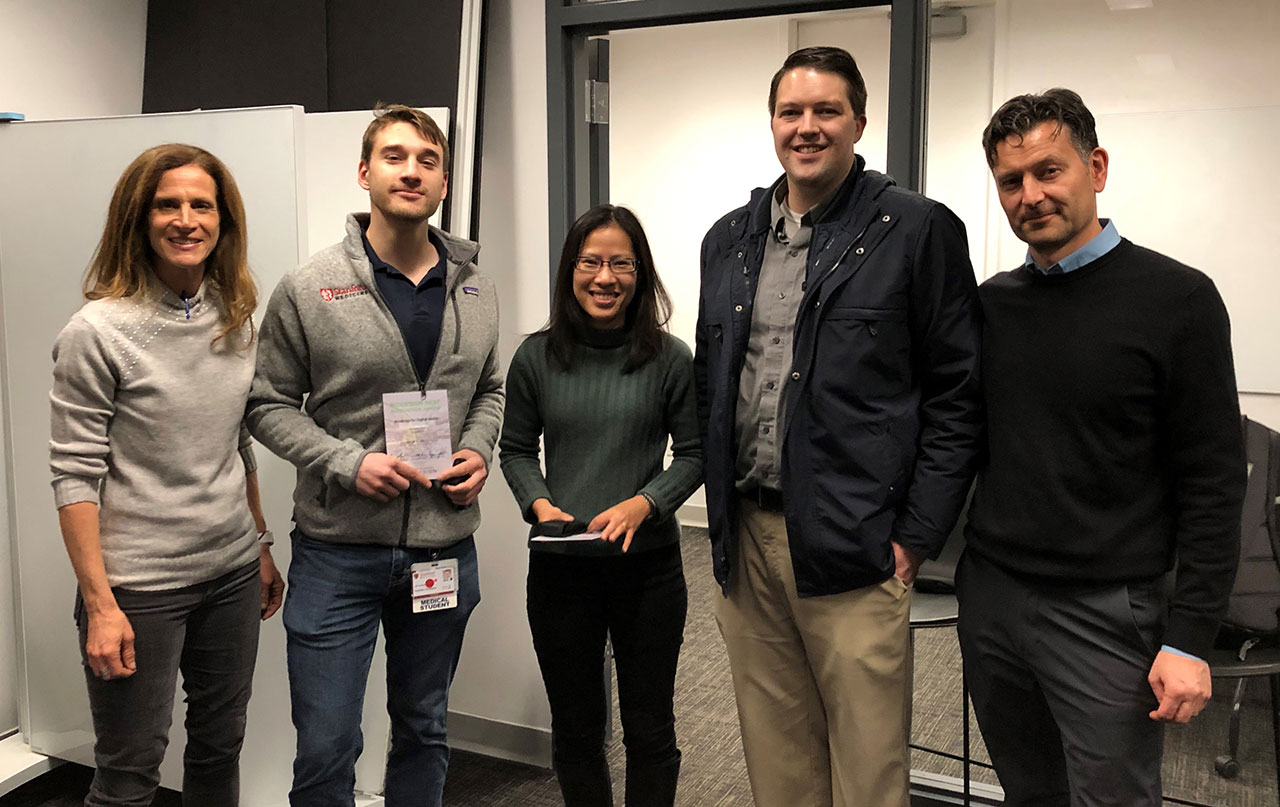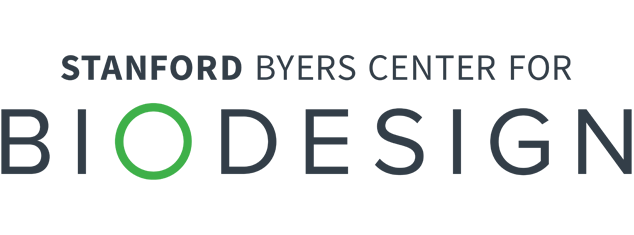Health Technology Showcase
Five Questions and an Elevator Pitch:
Team Autijob
 In this short video clip, members of the Autijob team explain the need they set out to address and how their solution works.
In this short video clip, members of the Autijob team explain the need they set out to address and how their solution works.
1. What’s the need your project seeks to address?
Beverly: We want to increase the employment rate for individuals with autistic spectrum disorder [ASD]. 85% of people with ASD who have a college degree are unemployed, compared to the [pre-COVID-19] national unemployment rate of 4.4% for other college-educated individuals. When we started the project, we focused on matching autistic job seekers with job openings. But through extensive interviewing we learned that, for those with ASD, the main barrier to employment isn’t finding opportunities, it’s getting through interviews successfully. Common behaviors expected in job interviews, like maintaining eye contact, can be difficult for autistic individuals, so they encounter bias from hiring managers who don’t understand their social challenges. So the need we’re working on became a way to overcome stereotypes in recruiting teams in order to increase the employment rate for individuals with ASD.
2. How does your solution work?
Beverly: The standard recruitment process for companies has three stages – prescreening, interviewing/selection, and job onboarding. Our solution addresses the first stage with a LinkedIn-type matching platform that screens an autistic job seeker’s educational background and work experience against the employer’s job description. It also includes an interactive feature so employers can communicate with potential employees. Then, there’s a second level for employers only that provides specialized training tools and expert consultation services to help their hiring teams better understand the strengths of neurodivergent employees and help manage their fear and discomfort interacting with people with autism.
3. What motivated you to continue working on your project, and what activities did you undertake?
Chun-Yen: We want to have a positive impact on the neurodivergent community. People with autism have social challenges, but that doesn’t mean than can’t do a job well. We believe everyone’s strengths should be appreciated no matter where they are on the spectrum.
In terms of activities, we’ve already mocked-up a website. With this prototype we’re now performing real-world testing and validation. We’re reaching out to both autistic individuals and employers to get their feedback so we can iterate and improve our solution.
 Members of the Autijob team with the Biodesign for Digital Health teaching team.
Members of the Autijob team with the Biodesign for Digital Health teaching team.
4. What’s one of the most important things you learned from advancing your project beyond class?
Chun-Yen: As we conducted more interviews after class, the most important thing we learned is to listen to the ‘music’ under people’s words. What people say doesn’t always convey how they really feel. Focusing on their feelings and gaining empathy for their situation is key to really understanding another person’s perspective.
Beverly: For example, we were interviewing an HR manager from a tech company about hiring individuals with ASD and he kept repeating the phrase, ’I’m not an expert on this.’ He said it three or four times during the interview. After talking to our coaches, adjunct professor Michael Barry and lecturer Michelle Jia, we realized that he was afraid of saying or doing the wrong thing. What he needed was a specialist to come in and help him. That’s when we realized that our solution needed to address bias and stereotype through training and education.
5. What advice do you have for other students who want to become health technology innovators?
Chun-Yen: Improving the employment rate for people with ASD is a complex challenge. It’s not something we can solve in just a couple of years. So we’re trying to focus on the most important things first and collaborate with organizations and employers to start moving towards a solution. With that in mind, our advice is to dream big and act smart, but never give up. Be prepared for a long but worthwhile journey.
Original team members: Beverly Chen, Nick Friedman, Simrin Kalkat, Chun-Yen Lai, Minh Nguyen
Course: Biodesign for Digital Health
Biodesign NEXT Funding: Awarded for winter and spring quarters 2020
